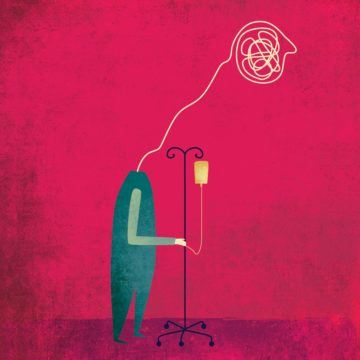Carrie Arnold in Nature:
 In her job as a physician at the Boston Medical Center in Massachusetts, Sondra Crosby treated some of the first people in her region to get COVID-19. So when she began feeling sick in April, Crosby wasn’t surprised to learn that she, too, had been infected. At first, her symptoms felt like those of a bad cold, but by the next day, she was too sick to get out of bed. She struggled to eat and depended on her husband to bring her sports drinks and fever-reducing medicine. Then she lost track of time completely.
In her job as a physician at the Boston Medical Center in Massachusetts, Sondra Crosby treated some of the first people in her region to get COVID-19. So when she began feeling sick in April, Crosby wasn’t surprised to learn that she, too, had been infected. At first, her symptoms felt like those of a bad cold, but by the next day, she was too sick to get out of bed. She struggled to eat and depended on her husband to bring her sports drinks and fever-reducing medicine. Then she lost track of time completely.
For five days, Crosby lay in a confused haze, unable to remember the simplest things, such as how to turn on her phone or what her address was. She began hallucinating, seeing lizards on her walls and smelling a repugnant reptilian odour. Only later did Crosby realize that she had had delirium, the formal medical term for her abrupt, severe disorientation. “I didn’t really start processing it until later when I started to come out of it,” she says. “I didn’t have the presence of mind to think that I was anything more than just sick and dehydrated.”
Physicians treating people hospitalized with COVID-19 report that a large number experience delirium, and that the condition disproportionately affects older adults. An April 2020 study in Strasbourg, France, found that 65% of people who were severely ill with coronavirus had acute confusion — a symptom of delirium1. Data presented last month at the annual meeting of the American College of Chest Physicians by scientists at the Vanderbilt University Medical Center in Nashville, Tennessee, showed that 55% of the 2,000 people they tracked who were treated for COVID-19 in intensive-care units (ICUs) around the world had developed delirium. These numbers are much higher than doctors are used to: usually, about one-third of people who are critically ill develop delirium, according to a 2015 meta-analysis2 (see ‘How common is delirium?’).
More here.
